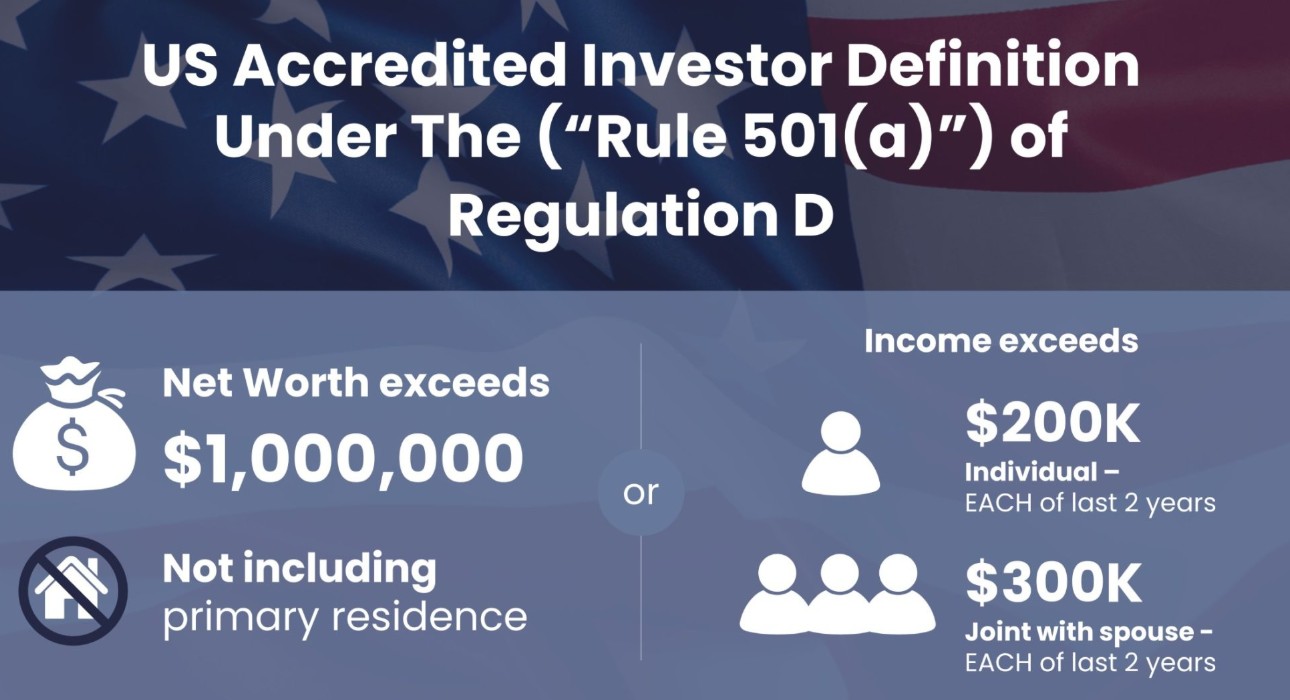What Is the Accredited Investor Rule? The Financial Filter
The Accredited Investor Rule is a key concept in securities law, designed to define the individuals and entities allowed to participate in certain high-risk investment opportunities. These include private placements, venture capital, hedge funds, and other exclusive investment vehicles typically unavailable to the general public.
The rule aims to protect less experienced investors from taking on investments that may be too risky or complex for their financial knowledge. On the other hand, accredited investors are deemed financially sophisticated and able to bear the risks associated with these investments.
With the growth of alternative investment markets, such as the rise of blockchain technologies and cryptocurrency, understanding the accredited investor rule has become increasingly important. In the context of a UK crypto exchange, for example, knowing whether you qualify as an accredited investor could open the door to more advanced investment opportunities in cryptocurrency.
Let’s explore this topic in more detail below.
What Is an Accredited Investor?
The U.S. Securities and Exchange Commission (SEC) defines an accredited investor as an individual or entity that meets specific financial criteria set out in securities laws. These criteria primarily include income, net worth, and, in some cases, professional knowledge.
For individuals, the most common qualification involves having an annual income of $200,000 (or $300,000 with a spouse) over the past two years, or a net worth exceeding $1 million, excluding the value of their primary residence. Accredited investors can also include institutions such as banks, insurance companies, or large employee benefit plans that meet specific financial thresholds.
The distinction is crucial because accredited investors are allowed to engage in private investment opportunities that are generally not open to the public. This privilege includes investing in private equity, hedge funds, and startups, where the risks and potential rewards are higher.
The Accredited Investor Rule’s Background and Purpose
The U.S. Securities and Exchange Commission (SEC) established the Accredited Investor Rule under the Securities Act of 1933. Its primary purpose is to protect less financially experienced individuals from high-risk investments, which are often complex and lack the transparency found in public markets.
By limiting certain investment opportunities to accredited investors, the SEC ensures that those involved in these ventures possess the financial means to absorb potential losses. The rule is based on the premise that individuals or institutions who meet specific financial qualifications (such as high income or significant assets) are more likely to understand and bear the risks of investing in private offerings.
Over time, the rule has evolved to include professional designations and experience as additional criteria. It intends to protect individual investors and maintain financial markets’ integrity by ensuring that only those with sufficient resources and knowledge engage in higher-risk, higher-reward investments.
What Is the Criteria for Becoming an Accredited Investor?

To qualify as an accredited investor, individuals must meet specific financial criteria outlined by the U.S. Securities and Exchange Commission (SEC). For individuals, the most common requirement is an annual income of at least $200,000 in the last two years (or $300,000 combined with a spouse) or a net worth exceeding $1 million, excluding the value of their primary residence.
Entities like banks, insurance companies, and investment firms can qualify if they have substantial assets or other financial characteristics that align with SEC standards. Another qualification category includes individuals with certain professional certifications, such as a licensed financial advisor, or those with extensive investment experience.
What’s more, certain family offices or employee benefit plans may also qualify as accredited investors. These criteria ensure that only individuals or institutions with the financial sophistication and ability to bear investment risks can participate in high-risk ventures like private equity or venture capital.
Implications of the Accredited Investor Rule
The Accredited Investor Rule has significant implications for investors and companies seeking capital. For investors, it provides access to exclusive investment opportunities, such as private equity, venture capital, and hedge funds, which typically offer higher potential returns but carry greater risks due to limited regulatory oversight and fewer disclosures.
However, it also means that investors must be financially prepared for these risks, as the investments are often illiquid and volatile. On the company side, the rule enables businesses to raise capital without adhering to the extensive registration and disclosure requirements required for public offerings.
This allows companies to attract more sophisticated investors, who can contribute capital and expertise. While the rule expands access to investment opportunities, it also places a greater responsibility on accredited investors to ensure they fully understand the risks involved in these private investment vehicles.
The Importance of Understanding the Accredited Investor Rule
The Accredited Investor Rule safeguards less experienced investors from high-risk opportunities. Understanding this rule ensures investors know whether they qualify for exclusive investment options and can make informed decisions. It streamlines capital-raising efforts for companies while maintaining market integrity and protecting financial stability.







